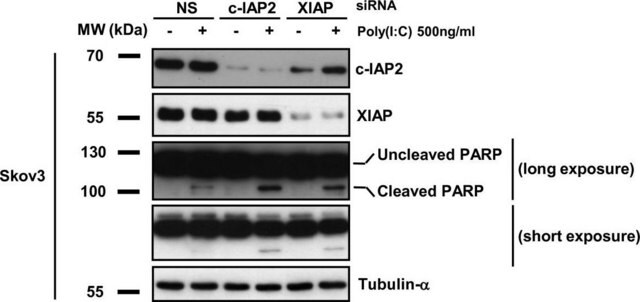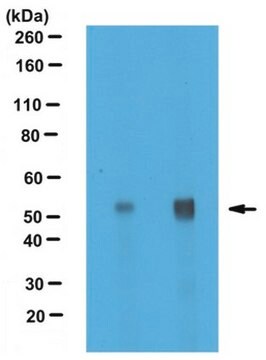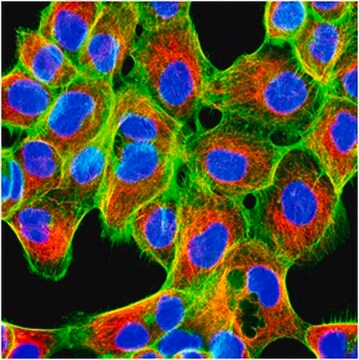MAB5566
Anti-Tubulin α Antibody, detyrosinated
ascites fluid, Chemicon®
Synonim(y):
Anti-Anti-B-ALPHA-1, Anti-Anti-LIS3, Anti-Anti-TUBA3
About This Item
Polecane produkty
pochodzenie biologiczne
mouse
Poziom jakości
forma przeciwciała
ascites fluid
rodzaj przeciwciała
primary antibodies
klon
monoclonal
reaktywność gatunkowa (przewidywana na podstawie homologii)
mammals
producent / nazwa handlowa
Chemicon®
metody
western blot: suitable
izotyp
IgG2a
numer dostępu NCBI
numer dostępu UniProt
Warunki transportu
dry ice
docelowa modyfikacja potranslacyjna
unmodified
informacje o genach
human ... TUBA1A(7846)
Specyficzność
Immunogen
Zastosowanie
Neuroscience
Neurofilament & Neuron Metabolism
Neuronal & Glial Markers
Postać fizyczna
Przechowywanie i stabilność
Informacje prawne
Oświadczenie o zrzeczeniu się odpowiedzialności
Nie możesz znaleźć właściwego produktu?
Wypróbuj nasz Narzędzie selektora produktów.
Kod klasy składowania
10 - Combustible liquids
Klasa zagrożenia wodnego (WGK)
WGK 1
Temperatura zapłonu (°F)
Not applicable
Temperatura zapłonu (°C)
Not applicable
Certyfikaty analizy (CoA)
Poszukaj Certyfikaty analizy (CoA), wpisując numer partii/serii produktów. Numery serii i partii można znaleźć na etykiecie produktu po słowach „seria” lub „partia”.
Masz już ten produkt?
Dokumenty związane z niedawno zakupionymi produktami zostały zamieszczone w Bibliotece dokumentów.
Nasz zespół naukowców ma doświadczenie we wszystkich obszarach badań, w tym w naukach przyrodniczych, materiałoznawstwie, syntezie chemicznej, chromatografii, analityce i wielu innych dziedzinach.
Skontaktuj się z zespołem ds. pomocy technicznej







